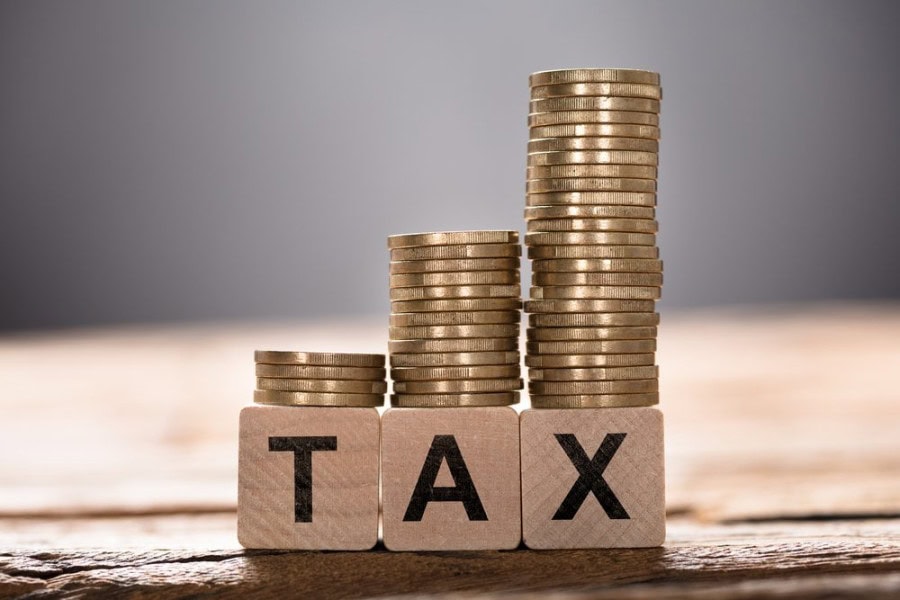Income tax slabs in Pakistan are based on an individual’s annual taxable income. The slabs are determined by the amount of income earned during the year. The government of Pakistan has finalized tax slabs for salaried individuals for the fiscal year 2022-23 and has set a minimum income tax rate of 2.5% for those earning up to Rs. 100,000 per month and a maximum of 35% for individuals earning a monthly salary over Rs.1 million.
Income tax slabs in Pakistan
There are seven different income tax slabs in Pakistan following the 2022 Finance Act
These are as follows:
1) Taxable income does not exceed Rs.600,000. Tax rate (0%)
2) Taxable income exceeds Rs. 600,000 but does not exceed Rs. 1,200,000. Tax rate (2.5% of the amount exceeding Rs. 600,000)
3) Taxable income exceeds Rs. 1,200,000 but does not exceed Rs. 2,400,000. Tax rate (Rs. 15,000 + 12.5% of the amount exceeding Rs. 1200,000)
4) Taxable income exceeds Rs. 2,400,000 but does not exceed Rs. 3,600,000. Tax rate (Rs 165,000 + 20% of the amount exceeding Rs. 2,400,000)
5) Taxable income exceeds Rs. 3,600,000 but does not exceed Rs. 6,000,000. Tax rate (Rs. 405,000 + 25% of the amount exceeding Rs. 3,600,000)
6) Taxable income exceeds Rs. 6,000,000 but does not exceed Rs. 12,000,000. Tax rate (Rs. 1,005,000 + 32.5% of the amount exceeding Rs. 6,000,000)
7) Taxable income exceeds Rs. 12,000,000. Tax rate (Rs. 2,955,000 + 35% of the amount exceeding Rs. 12,000,000)
The government has announced that the new tax rates will be implemented from April 1, 2020.
The new tax rates were announced after the passage of the Finance Bill 2019-2022. The new tax rates will come into effect from June 30th, 2022.
When should I pay taxes in Pakistan?
An individual is required to file a return of income with the tax authorities on a fiscal year basis (1st July till 30th June). Filing a return that’s revised requires prior approval of the Commissioner, subject to certain limitations and conditions. The Commissioner is now also empowered to grant approval for the revision of a return for a bona fide omission or wrong statement.
Every resident taxpayer filing a return of income is required to file a wealth statement along with the return of income. The Commissioner can also require any person to furnish the said statement. For revision of a wealth statement, an intimation has to be filed with the Commissioner, who is empowered to disallow/disregard such revision in case he/she is of the view that the same has not been made for correction of bona fide errors or omissions. A taxpayer has been allowed to make revisions to a wealth statement for up to a period of five years.
Income tax is withheld from salaries by the employer. The amount to be withheld is determined by applying to the salary the average rate of tax on the estimated income of the employee for the fiscal year.
Advance tax is payable by an individual (other than a salaried individual) in four installments if the latest assessed taxable income is in excess of PKR 1 million.
Dar advises FBR to increase efforts to achieve tax potential










